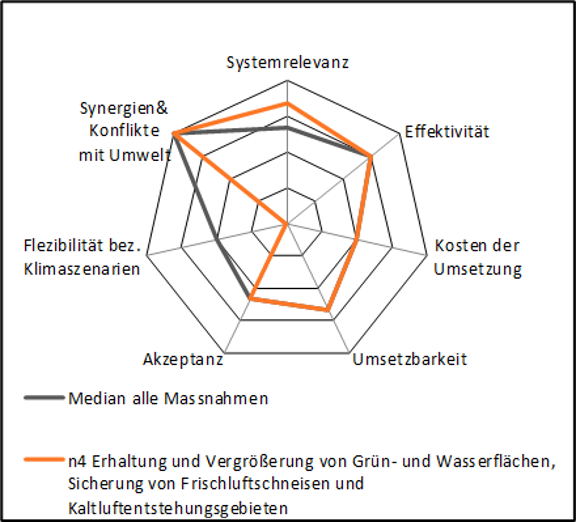Socio-Economic Assessment
Socio-Economic Assessment

Example for evaluation of measures
INTRODUCTION
The work package aims to develop a methodology for the socio-economic assessment of stormwater management measures at the neighbourhood level. Based on this, an evaluation tool will be developed and subsequently tested in pilot areas in Cologne and Berlin. Stakeholders will be involved in the development of the method and the tool. The work will be carried out by Ecologic Institute together with the RPTU Kaiserslautern-Landau, the University of Stuttgart, the Kompetenzzentrum Wasser Berlin (Berlin Centre of Competence for Water) and the practice partners in Berlin and Cologne: Berliner Wasserbetriebe and Stadtentwässerung Köln.
IDEAS
The socio-economic analysis extends the analysis of hydrological impacts of flood protection and drought measures (in WP2 and 3) to include economic and social components. Suitable assessment criteria will be selected for the analysis, and are evaluated using a scoring method (multi-criteria analysis). A broad set of criteria will be used, e.g. the assessment will emphasize synergetic effects or trade-offs for individual measures (e.g. between climate adaptation and protection), implementation-oriented criteria (such as acceptance and feasibility of measures) or economic aspects (such as costs of the measures). Furthermore, synergies for different extreme events (incl. flooding and drought) are a central point to be included. In a further step, procedures for the monetary evaluation of cost and benefit components will be developed. This will include, for example, avoided flood and drought damages or the effects on water quality.
IMPLEMENTATION
A tool will be developed which emphasizes practical application. We will test the tool for the pilot areas in Berlin and Cologne.
One of the main challenges for the work within this work package is the development of meaningful results to support decision-making at the practical level. In particular, an application at the neighborhood and urban district level requires robust methodological approaches that can reflect local specifics.



